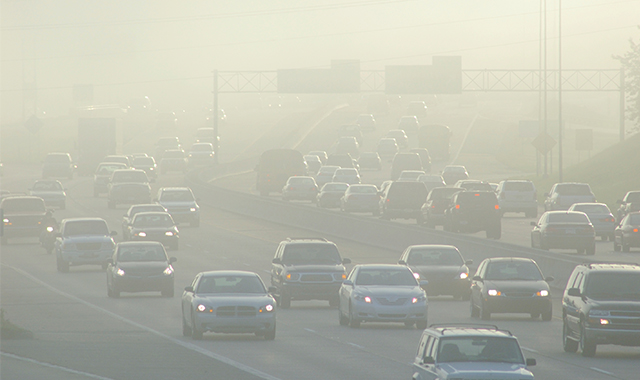
Anthropogenic emissions that lead to air pollution (particulate matter and ozone) are also large contributors to climate change. Unlike the well-mixed greenhouse gases, the spatial distribution of these emissions affects their climate impact. A better understanding of the role of aerosols and ozone in contributing to historical and projected future climate change provides insight into the relative importance of air pollutants versus well-mixed greenhouse gases, the role of uncertainties in forcing in creating uncertainties in regional climate projections, and the balance between efforts to improve air quality and mitigate climate change.

In his presentation "How Air Pollution Affects Climate and What We Can Do About It", this year's Kendall Lecturer Drew Shindell, a senior scientist at the NASA Goddard Institute for Space Studies in New York City, discussed recent progress in understanding the role of aerosols and ozone and the implications for our understanding of climate sensitivity, of the recent slowdown in global warming, and of the benefits to both climate and human health that can be obtained by taking action to reduce air pollutant emissions.
Dr. Shindell who taught atmospheric chemistry at Columbia University for more than a decade, earned his Bachelor's degree at UC Berkeley and his PhD at Stony Brook University, both in Physics. His research concerns natural and human drivers of climate change, linkages between air quality and climate change, and the interface between climate change science and policy. He has been an author on more than 100 peer-reviewed publications and received awards from Scientific American, NASA, and the NSF. He has testified on climate issues before both houses of the US Congress, the UNFCCC and the World Bank, developed a climate change course with the American Museum of Natural History, and made numerous appearances in newspapers, on radio, and on TV as part of his public outreach efforts. He chaired the 2011 Integrated Assessment of Black Carbon and Tropospheric Ozone produced by the United Nations Environment Programme and World Meteorological Organization. Most recently he was a Coordinating Lead Author on the 2013 Fifth Assessment Report of the Intergovernmental Panel on Climate Change, and chairs the Scientific Advisory Panel to the Climate and Clean Air Coalition of nations.
The Henry W. Kendall Memorial Lecture Series honors the memory of Professor Henry Kendall (1926-1999), a 1990 Nobel Laureate, a longtime member of MIT’s physics faculty, and an ardent environmentalist. A founding member and chair of the Union of Concerned Scientists, he played a leading role in organizing scientific community statements on global problems, including the World Scientists’ Warning to Humanity in 1992 and the Call for Action at the Kyoto Climate Summit in 1997.
Following the lecture there was a reception in the Green Building.

